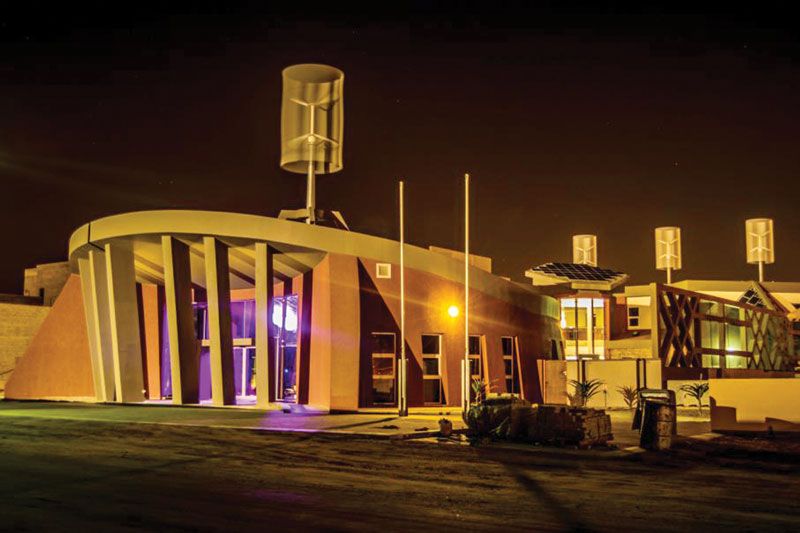
Fast-track the transition to a local Circular Economy (CE)

By Josef Kefas Sheehama.
The government is currently exploring the possibility of expanding producer responsibility by reaching agreement with producers as to how much recyclable material is to be included in their products.
Circular design is important for a circular economy. This means designing and developing products in such a way that they are easy to repair, recycle and r-euse. Circular design is geared to prevent waste. When applied as an industrialization strategy, the circular economy has the potential to decouple resource use from economic development to help addressing key Namibian challenges such as climate change, food security, water scarcity, and natural resources management.
The agricultural and hospitality sectors need to be put in the centre of Namibia’s circular economy pathway, as both are key sources of employment and income. A widespread adoption of circular principles could create new employment-generating business opportunities and green jobs.
Circular economy (CE) principles play a strategic role in advancing the NDP’s and HPP’s. The predominantly informal nature of waste management in Namibia needs to be formalized to a degree, and leveraged to develop a structured, integrated waste management solution for urban and rural areas. Application of circular models to waste management such as the recovery and processing of secondary materials has the potential to unlock many new economic opportunities.
The waste industry should be considered an important enabler for CE development and a driver of job creation, as improved collection and utilization of waste can simultaneously reduce the increasing pressures on the environment and ensure the recovery of otherwise lost economic value. It retains the value of products, materials and resources in the economy for as long as possible and aims to regenerate natural systems. A circular economy mimics the circularity of nature. It transforms the current economic model to sustainability as materials and products are kept at their highest possible value as they move and are retained within the economy through value retention processes and innovative business models.
In key economic sectors, including energy generation and transmission, water, construction, consumer goods or agriculture and food production, the circular economy can bring multiple benefits, including climate change mitigation. A circular economy offers cost-effective ways of achieving deep emission cuts. These cost benefits are made possible by ensuring that products and materials are not wasted, and loss of value is minimized across the value chain.
A circular economy could also involve mechanisms that encourage greater resource use synergies across different value chains. The economy may even leapfrog to a more sustainable development approach by learning lessons and avoiding pitfalls of resource-intensive practices of the linear economy.
Government policy in Namibia has a major role to play at local, regional and national level. There is little circular economy specific legislation and so regulations and policies are generally focused on climate change, the Green Economy, and waste management. The Green Economy Strategy is geared to enabl Namibia to attain a higher economic growth rate consistent with Vision 2030 which firmly embeds the principles of sustainable development in the overall national growth strategy.
The important driver is the need for affordable and sustainable energy sources, as a great part of the population still lacks access to energy. Economic transformation to a circular economy and economic growth, necessary to lift people out of poverty, will require substantial energy resources. The high cost of connecting remote areas and communities to the grid makes the development of decentralized sustainable energy solutions as well as the use of renewable energies important drivers on the way towards a Green Economy.
By developing circular design measures, ensuring the uptake of secondary raw materials, including innovations in technologies for recycling of mixed fibres, tackling the presence of hazardous chemicals, and providing consumers with easy access to reuse and repair services, the circular economy model can contribute to the sustainability and greenhouse gas emission reduction in global industry.
Some of the most economically attractive options are to be found in circular economy strategies that focus on increasing the utilization and lifetime of products and are often based on innovative business models. On a side note, at a time when global focus is on the 4th Industrial Revolution and the potential of the ICT sector, Namibia is being left behind. The industry has the potential to drive circular economy approaches across all sectors, facilitating digital access to services that negate the need for ownership.
Digital poverty needs to be addressed holistically, not limited to connectivity. Only then can large-scale uptake of digital solutions for circular consumption take place.
Namibia is poised to become the renewable energy hub of Africa. Namibians must play a role in crafting climate-change solutions, not just for the sake of our citizens, but indeed for the global community at large. Improving the overall trade and investment climate in Namibia will be an important prerequisite also to unlock investments in circular business activities and trade in CE-related goods and services.
The need to diversity the local economy in general, can be an important driver of establishing Circular Economy principles but a robust regulatory framework and effective enforcement of legislation will be needed to drive the transition.












































